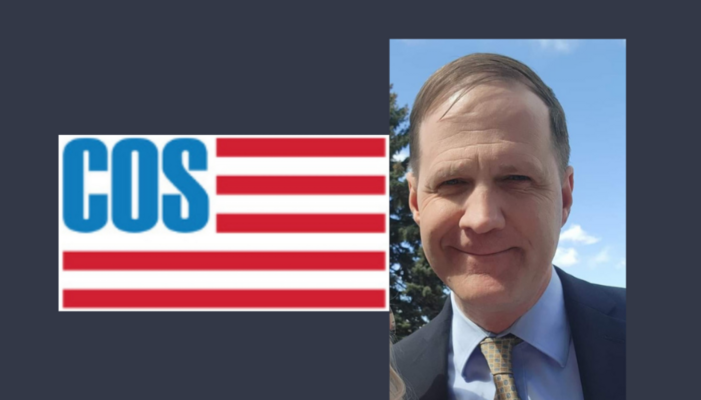Written by Mr. Michael D. Forbis, March 15, 2023
District Captain for Colorado House District 14 and Senate District 9
The United States has reached a critical historical point where federal power has become very centralized, and it is necessary to amend the U.S. Constitution in order to bring power closer to the American people. Grassroots activism is the core approach to achieve this accomplishment. In other words, it simply requires American citizens to take action to seek change in the structure of federal government as established by “We the People.”
According to Gallup Polls, a majority of the American population generally thinks the federal government has too much power (54%), and this has been the general trend for approximately 20 years. The rest of the population thinks the federal government has the right amount of power (39%) or too little power (6%). Essentially, there is a lack of balance of power with the federal government and the American people.
By the design of the U.S. Constitution, the American people allow and limit power of the federal government, and two amendment methods exist through the process of the U.S. Constitution as described in Article V. First, members of Congress can propose amendments by two-thirds majority in both chambers. Second, two-thirds of state legislatures (34 of 50) can pass a resolution to form a convention of states to propose amendments. In both methods, any proposed amendments are then sent to the states where three-fourths of the state legislatures (38 of 50) must pass the amendments to change the U.S. Constitution.
Historically, members of Congress have become the primary method to propose amendments, and every American citizen has three voices in Congress through one U.S. Representative and two U.S. Senators. Any American can write, speak, and engage his or her voices in Congress with a proposed amendment to the U.S. Constitution. If this method does not work effectively, then any American can write, speak, and engage his or her state legislature with a proposed resolution to call a convention of states in order to amend the U.S. Constitution. The second method of calling a convention of states appears to be the preferred method this current day in age, and it firmly illustrates the grassroots activism approach.
There are multiple amendments to potentially add to the U.S. Constitution, and there are some that specifically limit power of the federal government. For instance, members of Congress currently have no time restrictions on their length of service as long as they are reelected. The more time a member of Congress is able to serve means more power. Thus, an amendment that places term limits on members of Congress is a clear way to limit power of the federal government. As another example, the federal government also has broad powers with respect to the budget process, and it does not have the same restrictions such as state governments or the free enterprise system of America. For this reason, a series of disciplined and balanced budget amendments involving timing, spending, and taxation restrain an irresponsible federal government budget process currently in existence.
Timing Amendment. Dictates a strict deadline for passing an annual budget and enforces a significant consequence if failed to pass on time.
Spending Amendment. Limits federal spending as a designated proportion of the gross domestic product (GDP) and better defines the meaning of “general welfare” as found in Article I Section 8 of the U.S. Constitution.
Taxation Amendment. Provides for a specific upper bound tax rate that cannot be exceeded on individuals and businesses. Ensures better predictability of tax expectations.
In his farewell address published in September 1796, George Washington stated: “If, in the opinion of the people, the distribution or modification of the constitutional powers be in any particular wrong, let it be corrected by an amendment in the way which the Constitution designates.” Today, this condition exists for proposing multiple amendments to the U.S. Constitution to limit power of the federal government.
Likewise in his 1st Inauguration Address in March 1861, Abraham Lincoln stated: “This country, with its institutions, belongs to the people who inhabit it. Whenever they shall grow weary of the existing government, they can exercise their constitutional right of amending it, or their revolutionary right to dismember, or overthrow it. I cannot be ignorant of the fact that many worthy, and patriotic citizens are desirous of having the national amendments, I fully recognize the rightful authority of the people over the whole subject…In your hands, my dissatisfied fellow countrymen, and not in mine, is the momentous issue of civil war. The government will not assail you. You have no conflict, without being yourselves the aggressors. You have no oath registered in Heaven to destroy the government, while I shall have the most solemn one to ‘preserve, protect, and defend’ it.” Before the outbreak of the Civil War, President Lincoln understood there were two ways angry Americans could change their government: amend it or overthrow it. He preferred to amend it, and the critical issue of slavery was the division facing the nation. Even though the Civil War broke out, Lincoln viewed the passage of a constitutional amendment eradicating slavery once and for all was “a King’s cure for all the evils.” In other words, it took the 13th Amendment to the U.S. Constitution to heal the nation.
According to both George Washington as the Father of the United States and Abraham Lincoln as the Savior of the United States, it takes the American people to change the structure of federal government through the amendment process of the U.S. Constitution. This is the essence of grassroots activism, and both of these former Presidents understood this principle. Most importantly, amending the U.S. Constitution will bring back a balance of power with the federal government and the American people.


